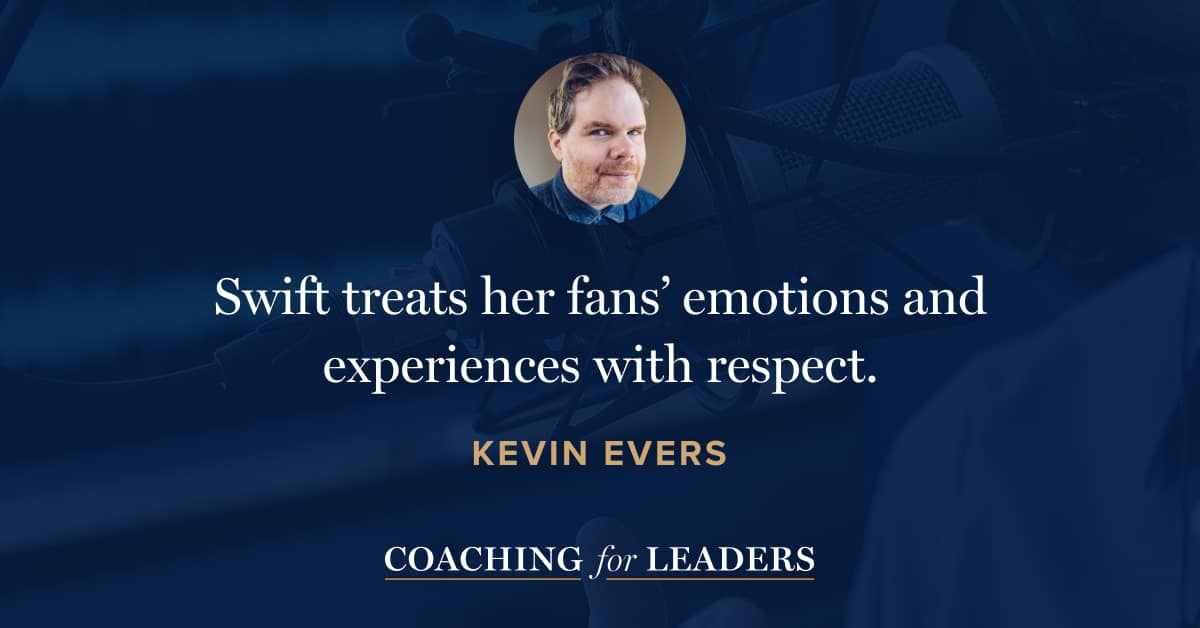Kevin Evers: There’s Nothing Like This
Kevin Evers is a Senior Editor at Harvard Business Review. Passionate about shaping groundbreaking research and amplifying pioneering ideas, he has edited bestselling and award-winning books on high performance, creativity, innovation, digital disruption, marketing, and strategy. He is the author of There’s Nothing Like This: The Strategic Genius of Taylor Swift*.
You may love her music. You may not. You may think she’s a business genius…or perhaps no. But one thing is for sure, you cannot ignore Taylor Swift. In this conversation, Kevin and I explore Swift’s strategic approach and what every leader can learn from her success.
Key Points
- Swift knows exactly her “job to be done” and delivers on it consistently.
- Swift treats her fans’ emotions and experiences with respect, and they respond in kind.
- Andy Grove famously said that only the paranoid survive. It’s one of many traits that helps Swift stay successful.
- Swift’s transition to pop was promotion-focused rather than prevention-focused. She led the story of her transformation.
- Not only is Swift clear on her vision, but she regularly reflects on the difficult steps to get there.
- Swift is a remarkable example of antifragility. Not only does she withstand stress and shocks, but they make her stronger.
Resources Mentioned
- There’s Nothing Like This: The Strategic Genius of Taylor Swift* by Kevin Evers
Interview Notes
Download my interview notes in PDF format (free membership required).
Related Episodes
- Doing Better Than Zero Sum-Thinking, with Renée Mauborgne (episode 641)
- The Reason People Make Buying Decisions, with Marcus Collins (episode 664)
- How to Keep Improving, with Maurice Ashley (episode 697)
Discover More
Activate your free membership for full access to the entire library of interviews since 2011, searchable by topic. To accelerate your learning, uncover more inside Coaching for Leaders Plus.





